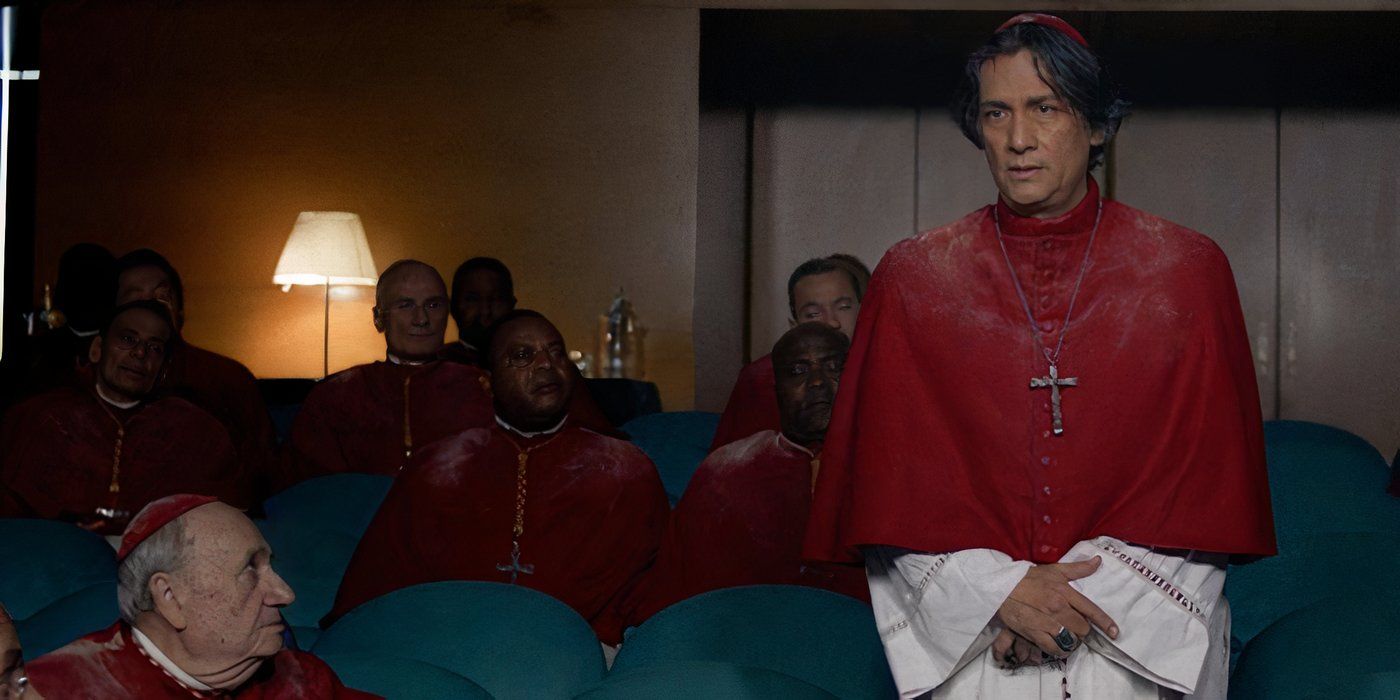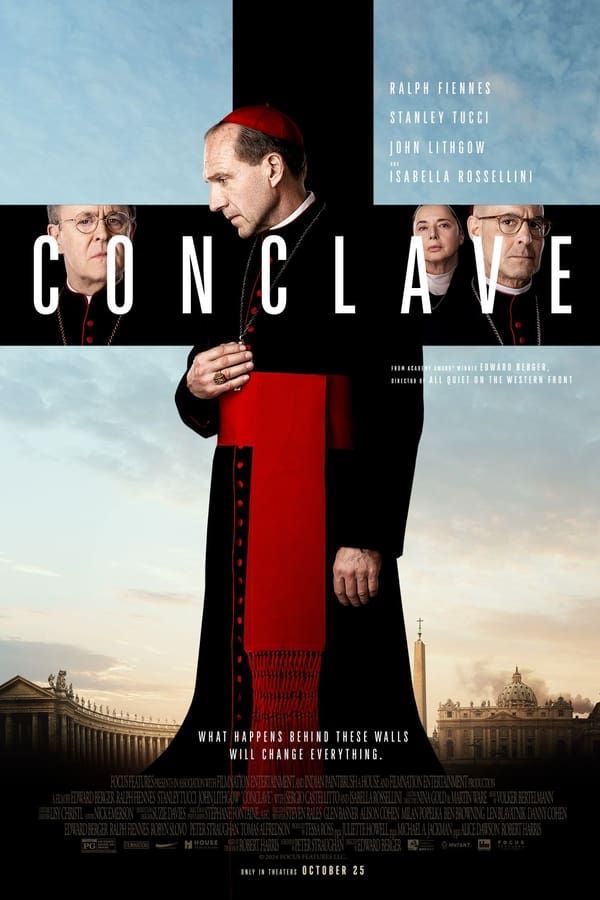Warning: This article contains SPOILERS for Conclave!The director of Conclave explains why Cardinal Benitez chooses the name Pope Innocent at the end of the film. Led by Ralph Fiennes and directed by Edward Berger, the movie, based on the novel of the same name by Robert Harris, follows the titular assembly of cardinals for the election of a Pope, as it winds through mystery and scandal. Several favorites are ruled out by said scandal and controversy until a dark horse wins the race, Cardinal Benitez (Carlos Diehz), a mysterious cardinal who served in Kabul.
Speaking with Vanity Fair, director Berger explains his understanding of why Benitez chose the name Innocent when he’s elected as the new pope. Berger says that “it’s a name of purity without any preconceptions,” typically that which is seen in children, who have no bad experiences, who are open to others, who have no prejudices, with Benitez having come to the world and his fellow Cardinals the same way. Read Berger’s full comment below:
It’s a name of purity without any preconceptions. You see it in children—they have no bad experience, they’re theoretically only positive, only open towards others. They have no prejudices. They’re innocent. Then society conditions them to be a certain way, their parents, school, friends, and bad experiences leave trauma. So Benitez comes to us with absolute openness, and I think that’s what it means.
What This Means For Conclave
The Movie Did Subtly Set Up This Reveal
This explanation from Conclave director Berger should serve as a good tidbit of information for those who are still confused by the name. While it may sound odd or unorthodox, the name isn’t all that uncommon. There are, so far, 13 Popes who chose the name Innocent for the papacy, the last one being Pope Innocent XIII, who was born as Michelangelo dei Conti and was head of the Catholic Church and ruler of the Papal states from May 8, 1721, to his death in March 1724.
Lawrence’s plea is answered, as Benitez, considering his secret which is revealed in one of
Conclave’s
final scenes, is someone who lives between certainty and doubt and manages to accept it with grace.
Berger’s explanation fits Benitez’s demeanor and actions throughout the film. Surrounded by cardinals with political agendas and hidden scandals, Benitez is a gentle presence, a breath of fresh air. In the beginning of Conclave, Fiennes’ Cardinal Lawrence says, “If there was only certainty and no doubt, there would be no mystery and therefore no need for faith. Let us pray that God grants us a pope who doubts.” Lawrence’s plea is answered, as Benitez, considering his secret which is revealed in one of Conclave’s final scenes, is someone who lives between certainty and doubt and manages to accept it with grace.
Our Take On Berger’s Explanation
Throughout Conclave, I was hoping that either Cardinal Lawrence or Cardinal Benitez would gain the papacy, but, considering Lawrence’s struggles with prayer and the mystery and seeming inexperience surrounding Benitez, that possibility seemed dim in hope. However, as the spool of scandal and controversy unravels, it becomes clear that Benitez is the proper choice. His soft-spoken and delicate disposition, and his experience with doubt, made him one of my favorite prospects. And, at the end of Conclave, when he earned the papacy, his decision to be referred to as Pope Innocent was perfectly fitting, as he himself was a reflection of paramount purity.
Source: Vanity Fair

